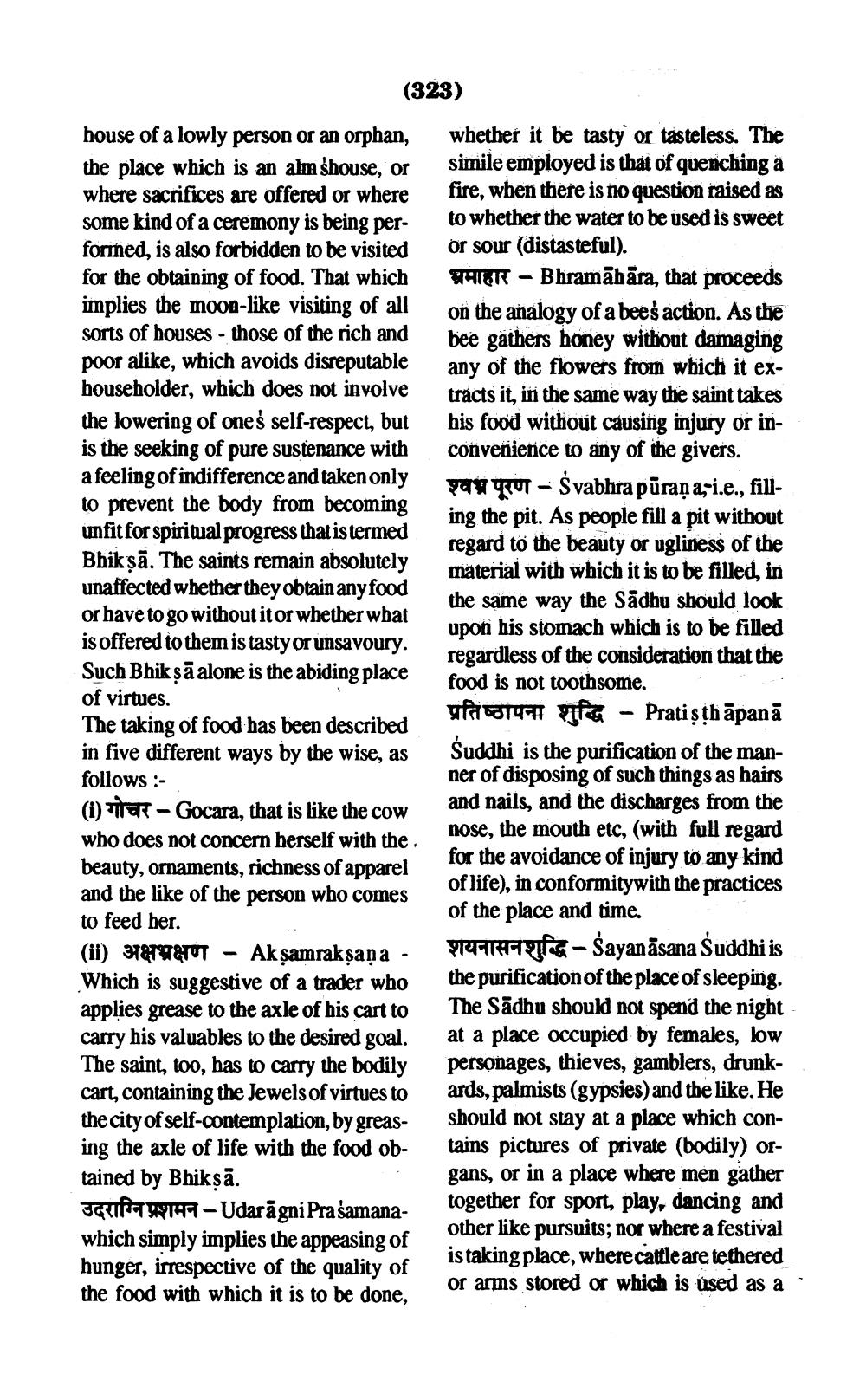________________
(323)
house of a lowly person or an orphan, the place which is an alm shouse, or where sacrifices are offered or where some kind of a ceremony is being per- formed, is also forbidden to be visited for the obtaining of food. That which implies the moon-like visiting of all sorts of houses - those of the rich and poor alike, which avoids disreputable householder, which does not involve the lowering of one's self-respect, but is the seeking of pure sustenance with a feeling of indifference and taken only to prevent the body from becoming unfit for spiritual progress that is termed Bhiksā. The saints remain absolutely unaffected whether they obtain any food or have to go without itor whether what is offered to them is tasty or unsavoury. Such Bhik şā alone is the abiding place of virtues. The taking of food has been described in five different ways by the wise, as follows :(1) TER - Gocara, that is like the cow who does not concern herself with the . beauty, ornaments, richness of apparel and the like of the person who comes to feed her. (ii) 378797&TUT - Akşamrakṣaṇa - Which is suggestive of a trader who applies grease to the axle of his cart to carry his valuables to the desired goal. The saint, too, bas to carry the bodily cart, containing the Jewels of virtues to the city of self-contemplation, by greasing the axle of life with the food ob- tained by Bhiksā.
Gifta 49147 - Udarāgni Pra samanawhich simply implies the appeasing of hunger, irrespective of the quality of the food with which it is to be done.
whether it be tasty or tasteless. The simile employed is that of quenching a fire, when there is no question raised as to whether the water to be used is sweet or sour (distasteful).
HIER - Bhramāhāra, that proceeds on the analogy of a bees action. As the bee gathers honey without damaging any of the flowers from which it extracts it, in the same way the saint takes his food without causing injury or inconvenience to any of the givers.
an UT - Švabhra pūraņa,i.e., filling the pit. As people fill a pit without regard to the beauty or ugliness of the material with which it is to be filled, in the same way the Sådhu should look upon his stomach which is to be filled regardless of the consideration that the food is not toothsome. प्रतिष्ठापना शुद्धि - Pratisthapana Suddhi is the purification of the manner of disposing of such things as hairs and nails, and the discharges from the nose, the mouth etc, (with full regard for the avoidance of injury to any kind of life), in conformitywith the practices of the place and time. शयनासनशुद्धि- Sayanāsana Suddhi is the purification of the place of sleeping. The Sadhu should not spend the night at a place occupied by females, low personages, thieves, gamblers, drunkards, palmists (gypsies) and the like. He should not stay at a place which contains pictures of private (bodily) organs, or in a place where men gather together for sport, play, dancing and other like pursuits; nor where a festival is taking place, where cattle are tethered or arms stored or which is used as a




